MIT App Inventor
MIT App Inventor provides a beginner's introduction to programming and app creation that replaces text-based coding with visual, drag-and-drop building blocks. The simple graphical interface allows an inexperienced beginner the ability to create a basic, fully functional app. An emphasis is placed on OOP principles. The tool is web-based and runs on both Windows and Mac computers. An emulator allows product to be viewed on the desktop on Mac or Win. Apps can be run on an Android mobile device.
Additional details
| Year band(s) | 9-10 |
|---|---|
| Format | Web page |
| Core and overarching concepts | Implementation (programming) |
| Australian Curriculum Digital Technologies code(s) |
AC9TDI10P09
Implement, modify and debug modular programs, applying selected algorithms and data structures, including in an object-oriented programming language |
| Keywords | Code, Coding, OOP, Programming, Classes, Attributes, Behaviours, Android, App |
| Organisation | MIT |
| Copyright | 2012-2015 Massachusetts Institute of Technology. Creative Commons BY-SA 3.0. |
Related resources
-

Codecademy
This site provides tutorials on web design tools. Requires free registration.
-
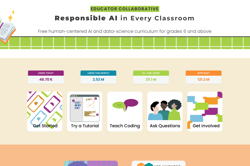
App Inventor EDU
Use this six week teaching program using a project based curriculum that allows students to explore the world of computer science through the creation of smartphone apps.
-
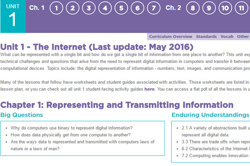
code.org
Code.org provides courses for F-12 year levels to increase knowledge in computer science. Free log in enables access to resources and more functionality.
-
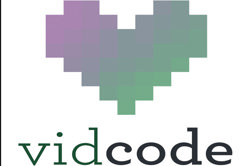
VidCode
Vidcode is aimed at teaching teenagers the skills of coding, especially girls. Vidcode provides an interactive way to learn code via step-by-step. Free log in required.
-

A-Z Handbook on Teaching Introductory Programming
This book viewable online using the 'look inside' feature or purchased in hard copy provides a comprehensive guide to programming for all levels.
-
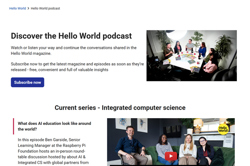
Discover the Hello World podcast
Watch or listen your way and continue the conversations shared in relation to tecahing and learning about Digital Technologies.
-
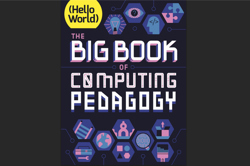
The Big Book of Computing Pedagogy
This guide focuses on approaches to teaching computing in the classroom, and includes pedagogically themed articles. It is structured around twelve pedagogical principles, originally developed by the Raspberry Pi Foundation for the National Centre for Computing Education in England.
-
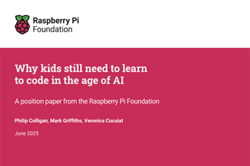
Why kids still need to learn to code in the age of AI
This report put forward evidence that even in a world where AI can generate code, we will need skilled human programmers who can think critically, solve problems, and make ethical decisions. It puts the case forward that young people need to learn to code because it is the most effective way for them to develop the mental models and fluency to become skilled human programmers.
